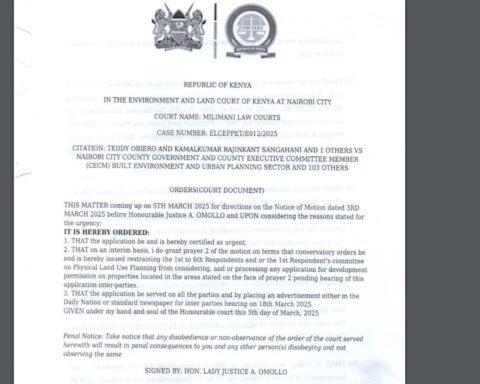In a landmark opinion, the United Nations’ top court, the International Court of Justice (ICJ), has declared that Israel’s occupation of Palestinian territories violates international law. This advisory opinion, although not legally binding, carries significant political weight and marks the first time the ICJ has taken a definitive stance on the 57-year occupation of the West Bank, East Jerusalem, and Gaza.
The Role of the International Court of Justice
The International Court of Justice, often referred to as the World Court, is the principal judicial organ of the United Nations. It settles legal disputes between states and provides advisory opinions on international legal issues. While its opinions are not enforceable, they carry considerable influence and moral authority.
Historical Context of the Israeli Occupation
The Israeli occupation of Palestinian territories began in 1967 following the Six-Day War. Since then, Israel has maintained control over the West Bank, East Jerusalem, and Gaza, areas that are home to millions of Palestinians. Over the decades, this occupation has been marked by ongoing conflict, settlement expansion, and numerous international debates.
ICJ’s Advisory Opinion
The ICJ’s opinion unequivocally states that Israel’s occupation and settlement activities in the occupied territories are illegal under international law. The court calls for an immediate cessation of settlement activities and for Israel to end its occupation as soon as possible. This opinion is based on various international legal principles, including the Fourth Geneva Convention and UN resolutions.
International Law and the Israeli Occupation
The Israeli occupation is governed by several international laws and treaties, including the Fourth Geneva Convention, which prohibits the transfer of an occupying power’s civilian population into the territory it occupies. Additionally, numerous UN resolutions have called for an end to the occupation and the establishment of a two-state solution.
Settlement Activities in the West Bank, East Jerusalem, and Gaza
Israeli settlements in the West Bank, East Jerusalem, and Gaza have been a contentious issue for decades. These settlements are considered illegal under international law, as they involve the transfer of Israeli civilians into occupied territory. The expansion of these settlements has led to the displacement of Palestinian communities and has been a major obstacle to peace.
Reaction from the Palestinian Authority
The Palestinian Authority has welcomed the ICJ’s opinion, viewing it as a significant step towards international recognition of their plight. Palestinian leaders have expressed hope that this opinion will galvanize international efforts to end the occupation and support the establishment of an independent Palestinian state.
Reaction from the Israeli Government
In contrast, the Israeli government has strongly rejected the ICJ’s opinion. Israeli officials argue that the court’s findings are biased and ignore the complex realities of the Israeli-Palestinian conflict. They maintain that the settlements are necessary for security and historical reasons.
Global Reactions
The ICJ’s opinion has elicited a wide range of reactions from the international community. Several countries and international organizations have expressed support for the court’s findings, urging Israel to comply with international law. Others have taken a more cautious approach, emphasizing the need for direct negotiations between Israel and Palestine.
Implications for the Peace Process
The ICJ’s opinion could have significant implications for the Israeli-Palestinian peace process. By reaffirming the illegality of the occupation, the court’s opinion might influence future negotiations and international diplomatic efforts. However, the lack of enforceability poses a challenge to its practical impact.
Political Weight of ICJ Opinions
Historically, ICJ opinions have played a crucial role in shaping international norms and influencing state behavior. Although not legally binding, these opinions often serve as a catalyst for diplomatic and political action, highlighting the moral and legal responsibilities of states.
Challenges in Enforcing the Opinion
One of the main challenges in enforcing the ICJ’s opinion is the lack of a direct enforcement mechanism. The court relies on the willingness of states and international bodies to implement its recommendations. In the case of the Israeli occupation, geopolitical complexities further complicate enforcement efforts.
Human Rights Considerations
The prolonged occupation has had severe implications for the human rights of Palestinians. Issues such as restricted movement, lack of access to resources, and ongoing violence have been documented extensively. The ICJ’s opinion underscores the need to address these human rights violations as part of the broader resolution of the conflict.
Future Prospects
Looking ahead, the ICJ’s opinion may serve as a foundation for renewed international efforts to resolve the Israeli-Palestinian conflict. Continued advocacy, diplomatic pressure, and engagement from the international community will be crucial in translating this opinion into tangible progress.
The ICJ’s landmark opinion on the illegality of Israel’s occupation of Palestinian territories is a significant development in the long-standing conflict. While not legally binding, the opinion carries considerable political weight and underscores the need for an urgent resolution. As the international community grapples with the complexities of this issue, the ICJ’s opinion serves as a reminder of the importance of upholding international law and human rights.
FAQs
What is the International Court of Justice?
The International Court of Justice (ICJ) is the principal judicial organ of the United Nations, responsible for settling disputes between states and providing advisory opinions on international legal issues.
Why is the ICJ’s opinion not legally binding?
ICJ advisory opinions are not legally binding because they are meant to provide guidance on legal questions rather than enforceable judgments. However, they carry significant moral and political weight.
How does the ICJ’s opinion impact the Israeli-Palestinian conflict?
The ICJ’s opinion highlights the illegality of the Israeli occupation under international law, potentially influencing international diplomatic efforts and future negotiations between Israel and Palestine.
What are the main arguments against the Israeli occupation?
The primary arguments against the Israeli occupation include violations of international law, human rights abuses, and the hindrance of a viable two-state solution for peace.
How can international law be enforced in this context?
Enforcing international law in the context of the Israeli occupation requires sustained diplomatic pressure, international advocacy, and cooperation from global institutions and states to hold parties accountable.














